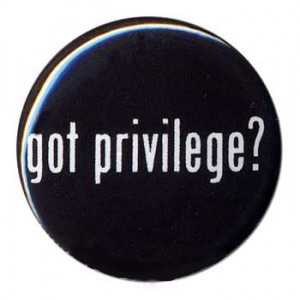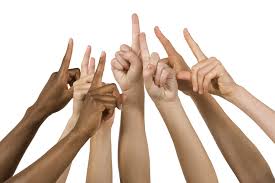You may be surprised to know that Latinos can change their race at will. Oh sure, for most people, race is a fixed attribute that was determined at the moment of conception. But Hispanics, unlike mere normal humans, can just go snap, and presto we’ve changed our race.
It’s kind of like Mystique, except we’re not naked all the time.

The proof of this superpower is in a recent New York Times article, which stated that between the 2000 and 2010 censuses, 2.5 million Americans who said they were Hispanic and “some other race” changed their minds and declared themselves to be Hispanic and white.
This was the largest shift in racial classification among Americans, and it provides, according to the Times, “new evidence consistent with the theory that Hispanics may assimilate as white Americans, like the Italians or Irish, who were not universally considered to be white.”
The data, supplied by the Pew Research Center, is “particularly significant” because “the shift toward white identification withstood a decade of debate over immigration and the country’s exploding Hispanic population, which might have been expected to inculcate or reinforce a sense of Hispanic identity, or draw attention to divisions that remain between Hispanics and non-Hispanic white Americans.”
Basically, it implies that many Latinos are saying, “Enough with the la raza talk. Consider me white.”
Now, some commentators have called shenanigans on this whole story. Indeed, it is quite a leap to glance at some raw numbers and make the sociopolitical conclusion that America may not be “destined to become a so-called minority-majority nation, where whites represent a minority of the nation’s population.” That’s because those predictions “assume that Hispanics aren’t white, but if Hispanics ultimately identify as white Americans, then whites will remain the majority for the foreseeable future.”
Let’s assume for the sake of argument, however, that the numbers reveal something profound about American culture and its future. Namely, that Latinos face “pressure — and the growing opportunity — to blend into society and to identify with the majority.”
Of course, this is a familiar phenomenon. Since this country’s founding, white people have held the vast majority of the political, economic, and cultural power. As such, it makes sense that Americans today “go on unthinkingly treating whiteness as the ideal and social baseline of American life.”
Indeed, there are very real advantages to being white — even if you’re not traditionally white. For example, Hispanics who see themselves as white tend to have higher levels of education and income, and they are less likely to have experienced discrimination.
Now, as we all know, Latinos can be of any race. There are your traditional brown-skinned Hispanics, black Brazilians, blue-eyed blond Argentineans, and just about every hue and texture in between.
As such, it’s no surprise that Hispanics have forged “a cross-cutting identity that can feel like a racial category (shorthanded as ‘brown’) that is sometimes set beside the other major blocs of America’s racial color grid.”
With our place on this mystical grid so amorphous, Latinos are often free to move outside the boundaries, which other ethnicities have trouble doing. Of course, this “fluidity may suggest a lot of things, including a pattern of Hispanic assimilation into whiteness.” And, according to the Times, “white identification may be an indicator of assimilation,” which is a potentially alarming statement.
After all, doesn’t that imply that real Americans are white?
I’ll have more on this in a subsequent post, but I will leave you to ponder that inflammatory question for now.














